Renting a car in Uganda opens up incredible opportunities to explore the Pearl of Africa at your own pace, from the misty mountains of Bwindi to the savanna plains of Queen Elizabeth National Park. However, protecting your rental vehicle requires careful planning and awareness of local conditions. This comprehensive guide will help you safeguard your rental car in Uganda while ensuring a safe and enjoyable journey through the cities, suburbs and remote regions of the country.
Understanding Uganda’s Driving Environment
Uganda presents unique challenges for drivers, particularly those unfamiliar with local conditions. The country’s road network includes well-maintained highways, deteriorating urban streets, and challenging rural routes. Understanding these conditions is crucial for protecting your rental vehicle.
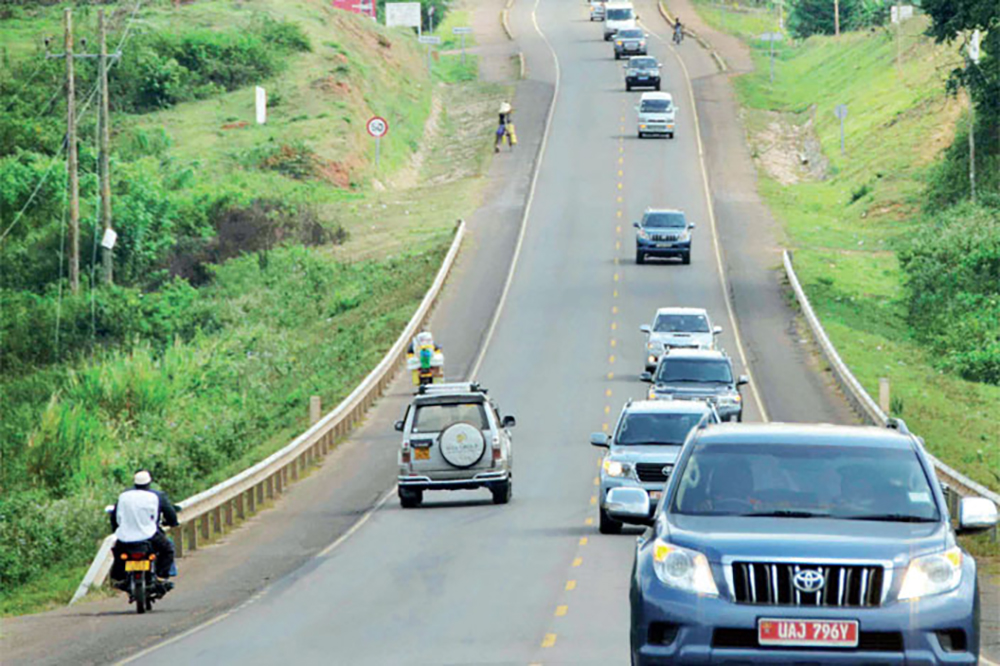
Road Conditions and Infrastructure
Uganda’s road system varies dramatically depending on your destination. Major highways connecting cities like Kampala, Entebbe, Jinja, and Mbarara are generally well-maintained tarmac roads. However, many secondary roads, especially those leading to national parks and remote areas, can be unpaved, potholed, or seasonally impassable.
During rainy seasons (March-May and October-December), even well-maintained roads can become treacherous. Flash flooding is common, and unpaved roads can become muddy and difficult to navigate. These conditions significantly increase the risk of vehicle damage if proper precautions aren’t taken.
Traffic Patterns and Urban Challenges
Kampala, Uganda’s capital, presents particular challenges with heavy traffic congestion, aggressive driving behaviors, and limited parking options. The city’s narrow streets and chaotic traffic patterns increase the risk of minor accidents and vehicle damage. Understanding peak traffic hours and alternative routes can help minimize exposure to these risks.
Pre-Rental Protection Strategies

Choosing the Right Rental Company
Selecting a reputable Uganda car rental company is your first line of defense. Look for established companies with good maintenance records, comprehensive insurance options, and 24/7 support services. International brands often provide standardized service levels, while local companies may offer better knowledge of local conditions and more flexible terms.
Research the company’s reputation through online reviews, tourism forums, and recommendations from travel agents or hotels. A reliable rental company should provide well-maintained vehicles, clear rental agreements, and responsive customer service.
Vehicle Selection and Inspection
Choose your vehicle based on your planned destinations and activities. For safari trips and rural areas, opt for a 4WD vehicle with good ground clearance. For city driving and highway travel, a standard sedan may suffice but ensure it has good safety features and reliable performance.
Conduct a thorough pre-rental inspection, documenting any existing damage with photos and written notes. Check the exterior for scratches, dents, and paint damage. Examine tires for wear and proper inflation. Test all lights, indicators, and electrical systems. Verify that spare tires, jacks, and basic tools are present and functional.
Insurance and Coverage Options
Comprehensive insurance coverage is essential when renting a car in Uganda. Standard options typically include:
Third-Party Liability: Covers damage to other vehicles and property, plus medical expenses for other parties. This is typically mandatory in Uganda.
Collision Damage Waiver (CDW): Reduces your financial responsibility for vehicle damage, though it usually includes a deductible.
Theft Protection: Covers vehicle theft, though specific terms and conditions vary.
Personal Accident Insurance: Provides coverage for medical expenses and personal injury.
Review policy exclusions carefully, as many standard policies don’t cover off-road driving, certain types of damage, or driving in specific areas. Consider purchasing additional coverage if your planned activities fall outside standard policy terms.
Physical Security Measures
Parking and Storage
Secure parking is crucial for protecting your rental car in Uganda. Always park in well-lit, populated areas when possible. Hotels, restaurants, and shopping centers often provide secure parking with attendants. In urban areas, use official parking facilities rather than street parking whenever possible.
When staying overnight, park in hotel compounds or secure parking areas. If camping or staying in remote areas, park close to your accommodation and consider additional security measures like steering wheel locks or car alarms.
Anti-Theft Devices and Precautions
Install or use anti-theft devices to deter opportunistic thieves. Steering wheel locks, gear shift locks, and car alarms can provide additional security. Many rental companies offer these devices or can recommend where to purchase them.
Never leave valuables visible in the vehicle, even when parked in seemingly secure areas. Use the trunk or glove compartment for storage, and consider bringing a small safe for documents and valuables. Remove GPS units, phones, and other electronics when leaving the vehicle unattended.
Window and Door Security
Ensure all windows and doors are properly secured when parking. Even slightly open windows can provide opportunities for theft. Consider tinting windows for additional privacy and security, though ensure any modifications comply with local regulations and rental agreements.
In urban areas, be cautious about opening windows or doors in heavy traffic, as this can make you vulnerable to grab-and-run thefts. Keep doors locked while driving, especially in congested areas.
Driving Safety and Vehicle Protection
Defensive Driving Techniques
Adopt defensive driving practices to protect both yourself and your vehicle. Maintain safe following distances, especially on unpaved roads where stopping distances increase. Be particularly cautious during overtaking maneuvers, as road conditions and driver behaviors can be unpredictable.
Stay alert for pedestrians, cyclists, and livestock on roads, particularly in rural areas. Animals frequently cross roads unexpectedly, and collisions can cause significant vehicle damage. Reduce speed in areas with high pedestrian traffic or livestock activity.
Weather-Related Precautions
Uganda’s tropical climate presents specific challenges for vehicle protection. During rainy seasons, avoid driving through flooded areas, as water damage can be extensive and expensive. If you must traverse water, do so slowly and steadily, ensuring water levels don’t exceed the vehicle’s wading depth.
Intense sun and heat can damage vehicle interiors and exteriors. Park in shaded areas when possible, use sun visors and window shades, and consider protective wax treatments for paint protection. Regular cleaning helps prevent damage from dust, mud, and salt.
Off-Road Driving Considerations
Many of Uganda’s attractions require off-road driving, which increases vehicle damage risks. Use proper off-road techniques, including appropriate tire pressure, low-speed driving, and careful route selection. Carry recovery equipment like tow straps and sand ladders for stuck vehicles.
Check rental agreements carefully, as many exclude off-road driving or require additional insurance. Some companies offer specialized safari vehicles with enhanced protection and equipment for off-road adventures.
Emergency Preparedness and Response
Emergency Kit Assembly
Prepare a comprehensive emergency kit for your rental car. Include basic tools, spare fuses, jumper cables, tire repair kit, flashlight, first aid supplies, and emergency contact information. Carry extra water, snacks, and blankets for longer journeys or remote area travel.
Include local emergency numbers, rental company contacts, and insurance information in your kit. Having these readily accessible can save valuable time in emergency situations.
Breakdown and Accident Procedures
Know the proper procedures for handling breakdowns and accidents. Contact the rental company immediately for guidance and support. Document any incidents with photos and written reports, including time, location, weather conditions, and other relevant details.
For accidents involving other parties, obtain contact information, insurance details, and witness statements. Avoid admitting fault or making statements that could affect insurance claims. Contact local police if required by law or rental agreement terms.
Communication and Support Systems
Ensure reliable communication during your travels. Carry a charged mobile phone with local network coverage and backup power sources. Many rental companies provide 24/7 support hotlines for emergencies and assistance.
Consider carrying a GPS device or ensuring your smartphone has offline maps, as cell coverage can be limited in remote areas. Inform someone of your travel plans and expected arrival times, especially for longer journeys.
Technology and Monitoring Solutions
GPS Tracking and Security Systems
Modern rental cars in Uganda may include GPS tracking systems for security and recovery purposes. Understand how these systems work and your responsibilities regarding their use. Some companies offer optional tracking services for additional security.
Car alarm systems can deter theft and alert you to unauthorized access. Ensure you understand how to operate any security systems and have backup keys or access codes if needed.
Mobile Apps and Digital Tools
Utilize smartphone apps for navigation, emergency services, and vehicle monitoring. Apps like Google Maps work offline and can provide valuable navigation assistance. Weather apps help you plan routes and avoid dangerous conditions.
Some rental companies offer mobile apps for customer support, reporting issues, and accessing rental information. Download and familiarize yourself with these tools before beginning your journey.
Insurance Claims and Documentation
Proper Documentation Practices
Maintain detailed records of your rental experience, including pre-rental inspections, daily condition checks, and any incidents or damage. Digital photos with timestamps provide valuable evidence for insurance claims.
Keep all rental documents, insurance papers, and receipts organized and easily accessible. This documentation may be required for insurance claims or dispute resolution.
Claims Process and Procedures
Understand the insurance claims process before you need it. Know what documentation is required, time limits for reporting claims, and procedures for different types of incidents. Prompt reporting is usually essential for successful claims.
Work closely with the rental company’s insurance representatives, providing all requested documentation and cooperation. Be honest and accurate in your reporting, as false statements can void coverage.
Budget Considerations and Cost Management
Hidden Costs and Fees
Be aware of potential additional costs beyond basic rental fees. These may include insurance deductibles, fuel charges, cleaning fees, and damage assessments. Understanding these costs helps you budget appropriately and avoid surprises.
Some Uganda car rental companies charge premium rates for certain destinations or vehicle types. Safari vehicles and 4WD rentals typically cost more than standard cars, but the additional protection and capability may justify the expense.
Cost-Effective Protection Strategies
Balance protection costs with potential risks. Comprehensive insurance may seem expensive, but it can be cost-effective compared to potential damage costs. Consider the value of your peace of mind and financial security when making coverage decisions.
Look for package deals that include insurance, equipment, and support services. Some rental companies offer all-inclusive packages that provide better value than individual service purchases.
Legal and Regulatory Considerations
Local Traffic Laws and Regulations
Familiarize yourself with Ugandan traffic laws and regulations. Speed limits, parking restrictions, and vehicle requirements may differ from your home country. Violations can result in fines, vehicle impoundment, or legal complications.
Ensure you have proper documentation, including valid driver’s license, international driving permit, and rental agreements. Keep these documents with you at all times while driving.
Border Crossing and International Travel
If planning to cross borders into neighboring countries, verify that your rental agreement permits international travel. Additional insurance, documentation, or permits may be required. Some rental companies restrict cross-border travel or charge additional fees.
Research entry requirements and regulations for destination countries, including vehicle import procedures, insurance requirements, and customs regulations.
Conclusion
Protecting your self drive rental car in Uganda requires careful planning, proper insurance coverage, and awareness of local conditions. By following these comprehensive guidelines, you can minimize risks while maximizing your enjoyment of Uganda’s incredible attractions.
Remember that the small additional costs of proper protection measures pale in comparison to potential damage expenses or travel disruptions. Invest in quality insurance, choose reputable rental companies, and maintain vigilant security practices throughout your journey.
Uganda’s natural beauty and cultural richness make it an incredible destination for self-drive adventures. With proper preparation and protection strategies, your rental car can safely transport you through unforgettable experiences while providing peace of mind and financial security.
The key to successful car rental protection lies in preparation, vigilance, and working with reliable partners. By implementing these strategies, you can focus on enjoying your Ugandan adventure while knowing your vehicle and finances are properly protected.
To book a rental car in Uganda for self drive adventure this season- simply contact us now by sending an email to info@ugandacarrentalservices.com or calling +256-700135510 to speak with the reservations team now.
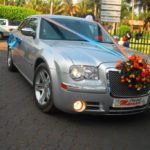
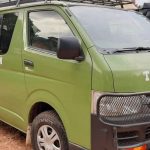
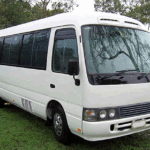
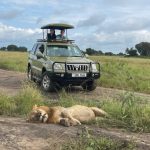
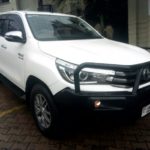
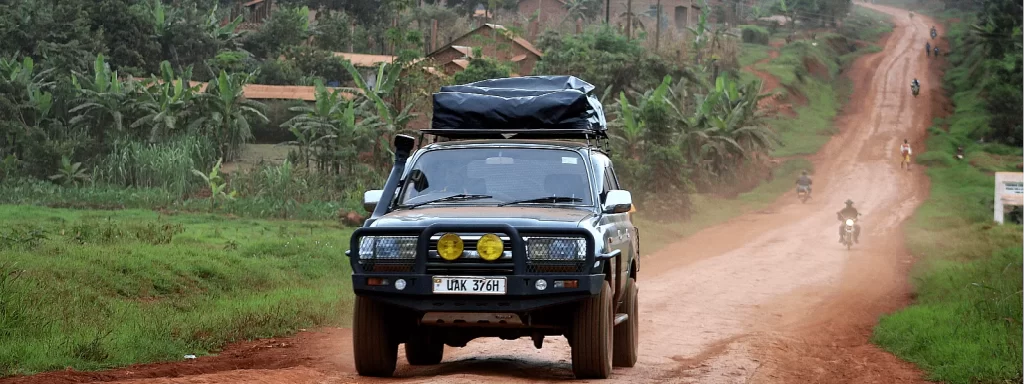
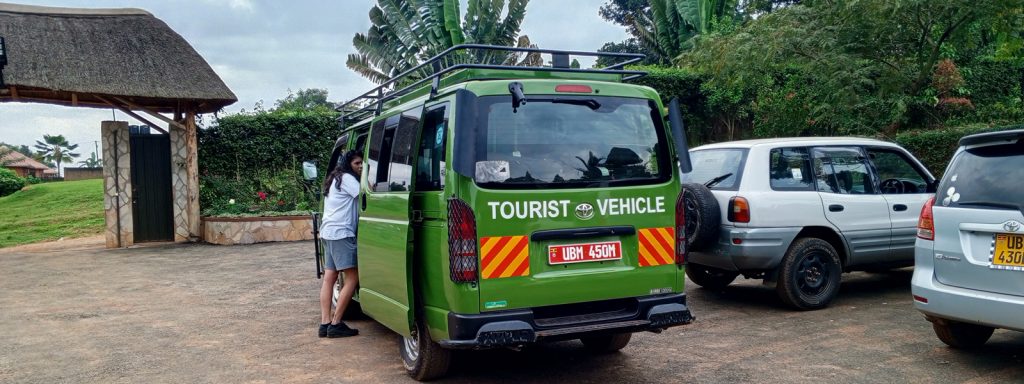

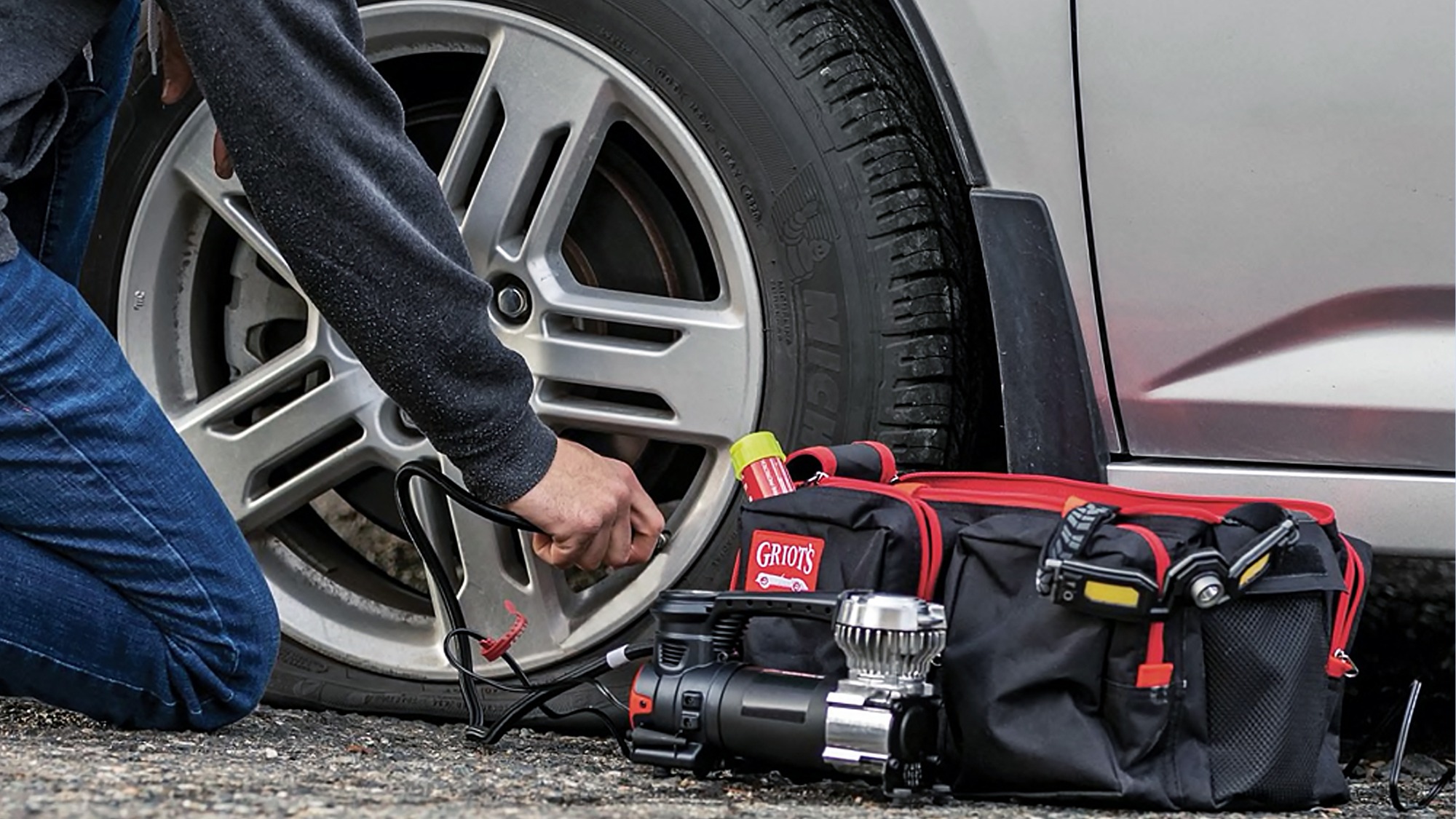
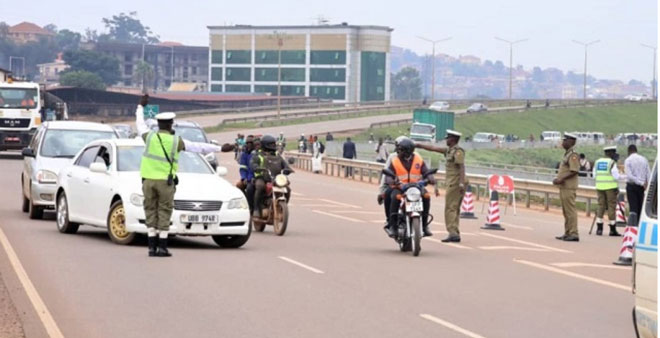

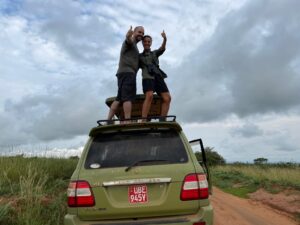


Related Articles
A USA Traveler’s Guide to Uganda’s Vibrant Street Life
Frequently Asked Questions About Uganda Car Hire Locations
Christmas Season Greetings from Uganda Car Rental Services